by Andrea Sánchez
A Surprise Pregnancy
Five months into a COVID lockdown, I found myself staring at a positive pregnancy test in my bathroom. This was not in my plans at all. I was working full-time while attending grad school. I’d just started a new job in banking, and the industry isn’t exactly pregnancy-friendly. On a bad day, it hardly feels woman-friendly.
I was working from home indefinitely because of the ongoing pandemic and I decided to keep my pregnancy to myself. This is a choice I made, but it is one that impacted me in many ways because the expectations my job placed on me didn’t change to reflect my pregnant status. How could they? I’d robbed myself and my employer of the opportunity of accommodating my pregnancy.
If I’m being honest, a part of me didn’t want accommodations because I was pregnant. I’d worked on male-dominated teams for years and men don’t have to go through experiences like pregnancy, miscarriages, menstruation, etc. Their careers don’t require a cushion for traumatic pregnancy-related experiences. I wanted what men had.
a part of me didn’t want accommodations because I was pregnant. I’d worked on male-dominated teams for years and men don’t have to go through experiences like pregnancy, miscarriages, menstruation, etc.
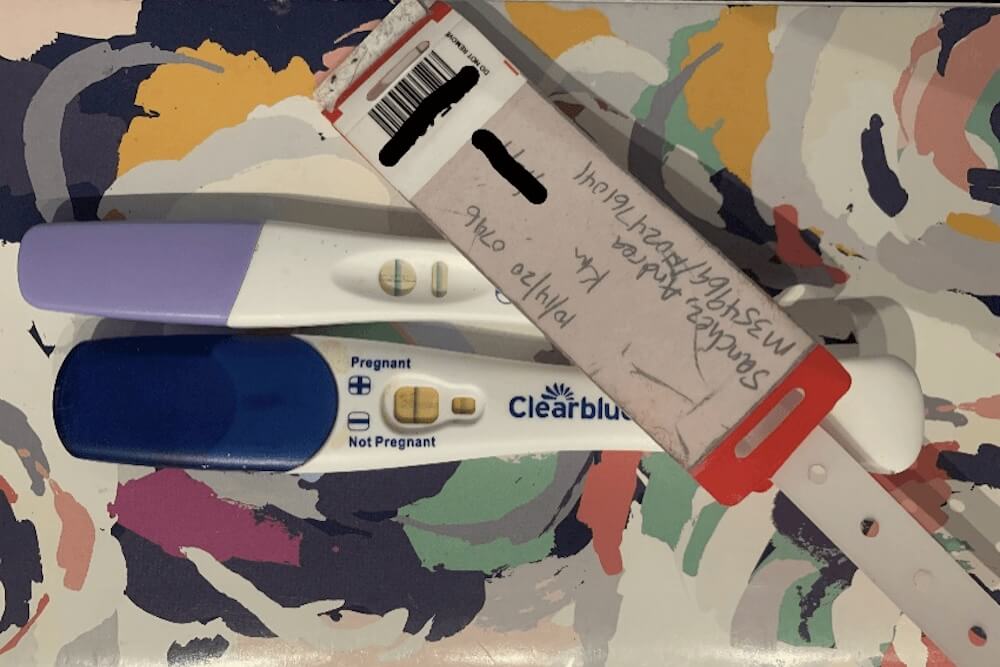
Although my pregnancy was unplanned, there was a lot of excitement. I had a great partner, I was healthy, I was financially stable, and according to doctors, the pregnancy was normal. I allowed my excitement to grow after a few check-ins with our doctor. In the back of my mind, I worried about my blood type. I’ve always known that I’m O negative, which can cause pregnancy complications. I’ve also always known that the 3 women in my family with my blood type have all suffered a miscarriage. This is one source of my fear.
Another source of my fear? Failing to manage work while pregnant. Most teams that I’ve worked on are male-dominated and in my opinion, I was able to excel on those teams because I was a single woman with no kids. Please note that I strongly believe pregnant women and women with kids can succeed in male-dominated teams, I just think we, as a society, make it extremely difficult for them to do so. Our workplaces don’t feel like they take into consideration the responsibilities that come with motherhood or womanhood. I felt this so strongly when I tried to manage my pregnancy and my banking job. I quickly felt overwhelmed and about 2 months in, I decided to place everything on pause. You can imagine my disappointment when 1 month later, I began spotting.
The Miscarriage
At this point, COVID was ravaging communities left and right and mine was no different. My husband drove me to the nearest ER the moment I began spotting. He wasn’t allowed inside because of COVID restrictions, which makes sense while also making the visit more difficult for patients. That day, doctors seemed worried when they performed an ultrasound. They said there was no sign of a baby. I began questioning my sanity. Did I imagine pregnancy? Did I make up the symptoms? No, but the doctors explained that they’re equally puzzled. They’ve been seeing me for months. They’ve monitored my pregnancy hormones to this day and my hormones are through the roof, but there’s no physical presence of a fetus that they can see. I was discharged but doctors scheduled a follow-up ultrasound in 48 hours.
They said there was no sign of a baby. I began questioning my sanity.
Did I imagine pregnancy? Did I make up the symptoms? No, but the doctors explained that they’re equally puzzled. They’ve been seeing me for months. They’ve monitored my pregnancy hormones to this day and my hormones are through the roof, but there’s no physical presence of a fetus that they can see.
After being discharged, I did my best to remain calm, but there was nothing that helped me feel calm. I didn’t understand what was happening. I got a few hours of sleep that night and the following night, I had the most painful cramps and aches that I’ve ever felt. This night introduced me to a new level of pain that I had not previously met. I told my family and my husband about the pain. They offered to take me back to the ER, but the thought of being alone in the ER was enough to keep me home. As the night progressed, so did the pain. So much so that I started to fear dying in my sleep. I remember resisting the urge to sleep because I was afraid I would never wake up again. I remember thinking that I needed my mother to check on me throughout the night because my body didn’t feel strong enough to make it through the night.
Then, I managed to get out of bed and walk to the bathroom. When I tried to walk back to bed, I took a few steps, and I felt my strength escape me. It’s like my body went limp as everything went black. I fainted because of the pain I’d been feeling. I woke up on the floor with my family surrounding me. At that point, it physically hurt to exist. It felt like my body was overpowered by the pain produced by the cramps. It hurt to talk. It hurt to move. I was bleeding non-stop as if I was menstruating. I knew this couldn’t be good, so I agreed to have an ambulance called.
The EMTs arrive and they explain that I have to ride alone because of COVID restrictions, and my time in the hospital will be the same. At this point, any fear that I felt had taken a backseat because survival kicked in. I was carried into an ambulance, and I found the strength to communicate with the EMTs until we reached the hospital. There is nothing to describe my hospital experience besides traumatic. Because of COVID, the hospital was filled with patients and yet, the hospital felt lonely because no patient was allowed a guest. Everyone there was either a patient or a medical professional. No one was there simply to offer support.
Because of COVID, the hospital was filled with patients and yet, the hospital felt lonely because no patient was allowed a guest. Everyone there was either a patient or a medical professional. No one was there simply to offer support.
When I reached the hospital, it was instantly confirmed that I’d had a miscarriage. The word was thrown around with every other sentence, and in the moment, I couldn’t find the strength to cry. Doctors explained that my heart rate was dangerously low when I arrived, which explained why I felt so weak. That, plus the blood loss that refused to slow down was a lot for my body. I felt so much fear, and it’s like the fear of not surviving overpowered the grief of miscarrying.
The hospital ordered an ultrasound and I get taken to an ultrasound area. The area is completely empty, as it should be, because of COVID. The staff member that brought me there tells me he must leave too. I’m scared of being alone, I’m confused, but I stay. A few minutes go by and there is literally no one around. My bleeding hasn’t stopped or slowed down and again, I begin to worry that maybe I’ll die here. Just as I face this fear, a man walks by. I flag him down and at this point, I’ve bled through everything I’m wearing. Instantly, the man looks concerned, and he agrees to take me back to my original room for help. Though this man’s face was the only one in that entire area, I don’t remember it. I do remember feeling saved by him.
I return to my ER room where a confused nurse assures me that I’ll be okay if I wait by the ultrasound area. The nurse brings me back to the ultrasound area and this time, an ultrasound is performed. Unsurprisingly, the ultrasound confirms that I’ve had a miscarriage. Though this was bad news, I felt relieved because I thought the next step was my discharge. I was wrong.
After an ultrasound, I received fluids and pain relievers. Then, I went through a series of what felt like vaginal exams. They consisted of me having fingers or devices up my vagina. Perhaps because of everything that happened, my body felt vulnerable and overly exposed, and it hurt each time a medical professional inserted their hands or their devices inside me.
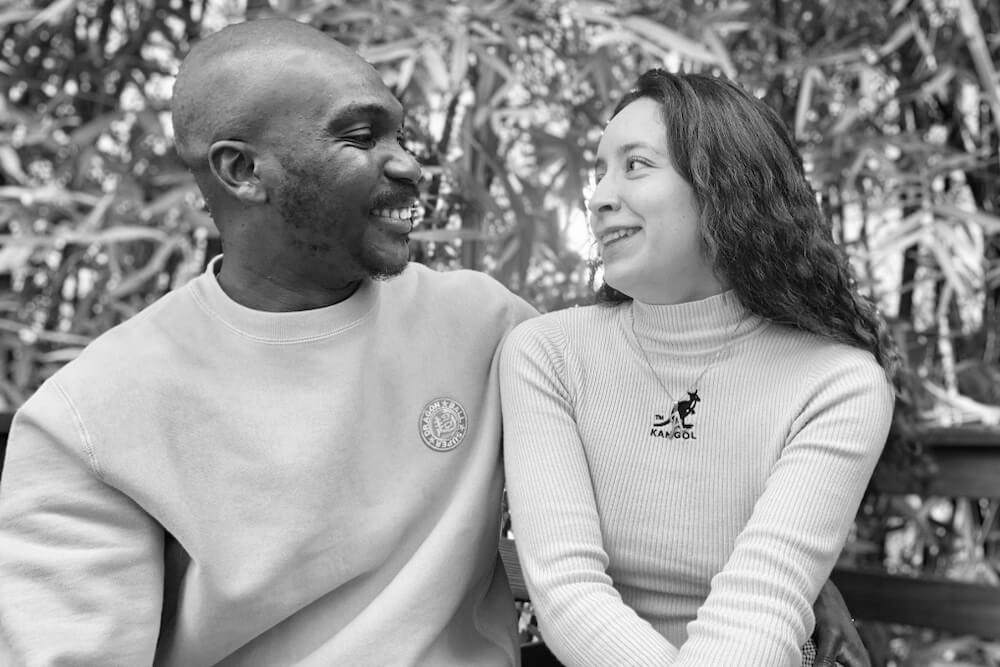
The Battle – Recovering from the Trauma of Miscarriage
After about 8 hours, I was discharged. This is when the real battle began. Whether it was the hormones or the trauma, I don’t know, but I felt fear and anxiety like never before. Getting through the days was tough because I felt anxious but getting through the nights was brutal. It’s as if my body was permanently on edge, making it impossible for me to sleep. So, for months, I was up at night. The miscarriage initially happened at night and it’s as if my body remembered that. For months, when those miscarriage hours rolled around, my body felt it. My body felt anxious, and there was non-stop crying, but once the sun came up, I’d feel some peace and I’d manage to get some sleep.
My friends and family call me a strong, fearless woman. For years, I traveled alone to many places for work. I’ve led stressful meetings in NYC, LA, London, Toronto, and Chicago, and none of that instilled fear in me like the miscarriage did. Suddenly, I felt fear all the time because I feared living in my own body. This new sense of fear caused so much shame for me.
A few days after the miscarriage, I went back to work even though deep inside, I knew my state of mind couldn’t handle it. A month in, I swallowed my pride and admitted that I needed all of me to heal. I had nothing to give to my job and I felt that at that moment, the job had nothing to give to me either. So, I quit. Grad school? Same story. I took a leave of absence. It took a lot for me to give up work and school, but I didn’t feel safe in my body anymore and I knew that if I didn’t heal that, it would impact everything.
My friends and family call me a strong, fearless woman.
For years, I traveled alone to many places for work. I’ve led stressful meetings in NYC, LA, London, Toronto, and Chicago, and none of that instilled fear in me like the miscarriage did. Suddenly, I felt fear all the time because I feared living in my own body. This new sense of fear caused so much shame for me.
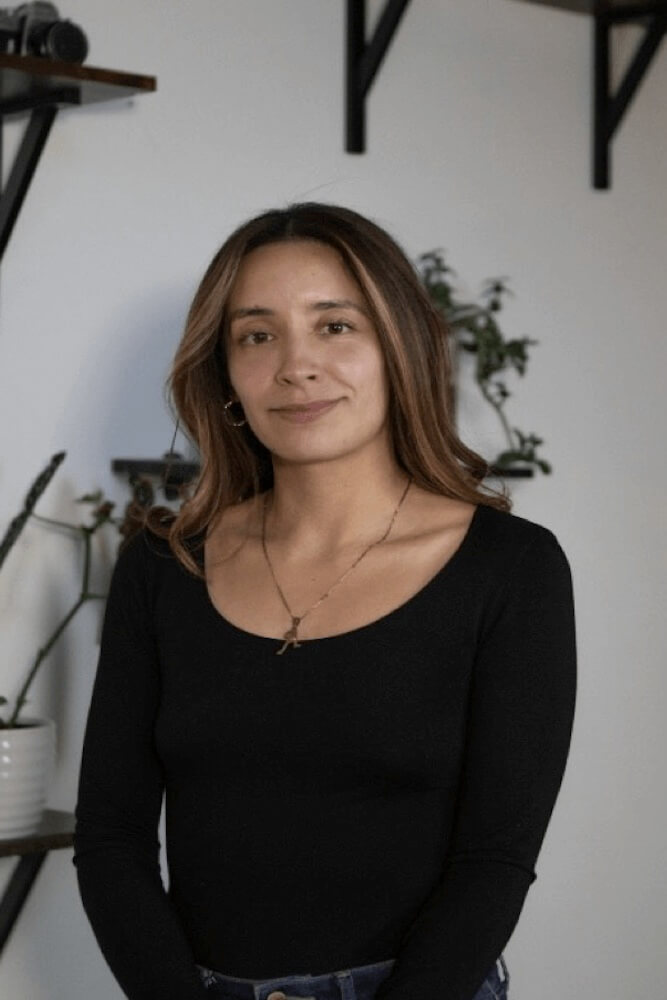
Free from work and school, I worked on restoring my brain and body connection. My ability to trust my body had been destroyed, and this weighed on me. I maintained a workout routine; I began boxing lessons. This helped me feel and become physically stronger while strengthening my mind and body connection. Boxing also gave me a place for my rage because the miscarriage made me sad, but it also filled me with rage. I needed to find a release for that rage because otherwise, I feared that it would live inside me indefinitely.
During this time, I read a lot about the female body, the female reproductive system, and I learned a lot. This helped me appreciate my body again because instead of focusing on the miscarriage, which I viewed as a failure, I could focus on everything that my body does successfully. Reading about the woman’s body taught me that our bodies are amazing and complex. The more I learned about my body, the tougher it became to feel angry towards it. At this time, I also focused on feeding my spirit. I did this by reading Ayurveda based books, meditating, and writing.
For a year, it felt like I was re-building myself. Self-admittedly, during this time, I stayed in a lot, I ignored a lot of phone calls, texts, and invites. I felt that I needed to do so. Have you ever seen a computer crash or display a blue screen? It’s like the computer stops processing everything. All the different systems built inside of the computer no longer matter because the computer itself can’t process anything. That is how I felt for months after the miscarriage.
The miscarriage made me feel like a victim and yet, going through it made me feel like I could be my own hero.
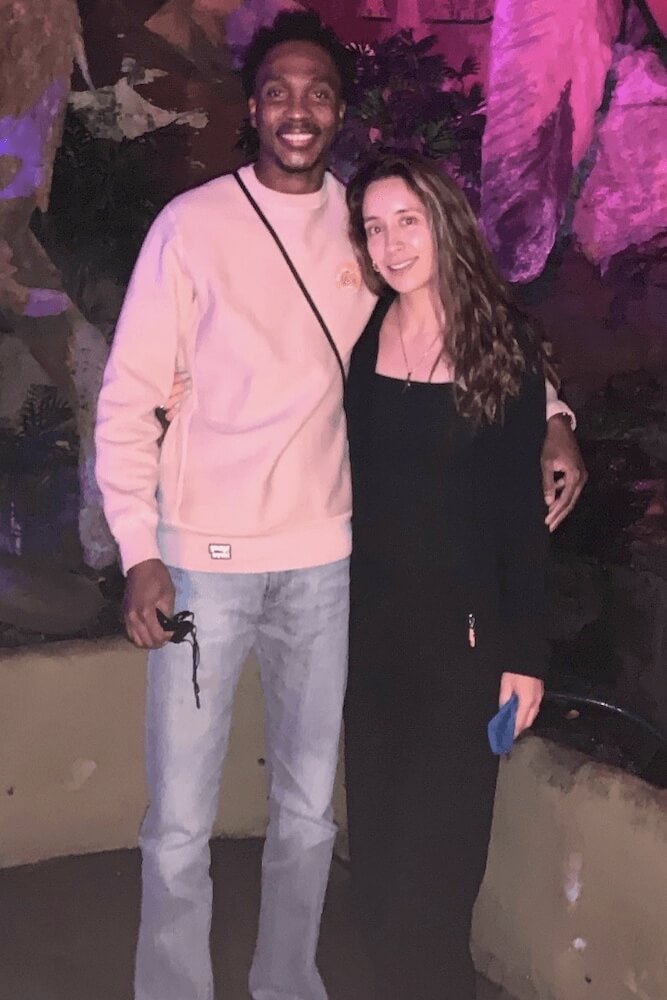
It has been 15 months since my miscarriage and sometimes, the sheer sight of my own menstruation sends me into panic mode. However, for the most part, I feel good these days. My body is healthy, my marriage is stronger, and my love for life feels abundant. I still work on male-dominated teams sometimes, but my approach to work is completely different. I started my own consulting business, and I joined a start-up marketing agency. These days, I prioritize moving at my pace and maintaining control over my time. The miscarriage made me feel like a victim and yet, going through it made me feel like I could be my own hero.
Q & A with Allison, Founder Miscarriage Hope Desk
How many miscarriages & how many live births?
I’ve had one natural pregnancy, which ended in a miscarriage. I was 27 at the time.
Looking back, what, if anything, do you wish you would have done differently?
I wish I would’ve asked for more help from my support system the moment I knew I was pregnant. Although I knew I was pregnant, I felt a pressure to “be strong”. To me, this meant that I kept working and kept my pregnancy silent at work. It also meant that I didn’t ask my husband for more support even though I was scared.
What were you told was the cause of your miscarriage?
To this day, my doctors have not been able to pinpoint the cause of my miscarriage. I carry Rh-negative blood, which can cause complications during pregnancy, and my OB-GYN believes this caused the miscarriage. However, it’s difficult to tell for sure. Also, going through pregnancy and a miscarriage during a pandemic significantly impacted medical visits. At times, doctors were out because they were sick, and check-ins occurred virtually. I still experienced amazing doctors, but medical care was definitely limited and I felt this in the post-miscarriage care.
What do you truly believe was the cause of your miscarriages?
I believe my blood type caused my miscarriage. Though, I’m sure the amount of stress I was carrying pre-pregnancy and during the pregnancy didn’t help. My blood type is rare (I’m O negative and 7% of the global population shares this blood type) and yet, I share it with 3 other women in my family. All of them suffered at least one miscarriage prior to having successful pregnancies.
What advice would you give to someone going through miscarriage?
I would encourage that person to be patient with his/herself and to love his/herself the way a best friend or a family member would love them. It feels impossible to know how pregnancy and a miscarriage may affect you. Both events can cause hormonal haywire within our bodies, and both events can be traumatic for our bodies. I would encourage miscarriage survivors to remind themselves of everything their body has been through, and I’d encourage them to create an allowance(a figurative one, of course) for themselves to experiment, to heal, and to just be.
Connect with Andrea
Instagram @_yeya_sg (I share a lot of writing, personal stories and projects here)

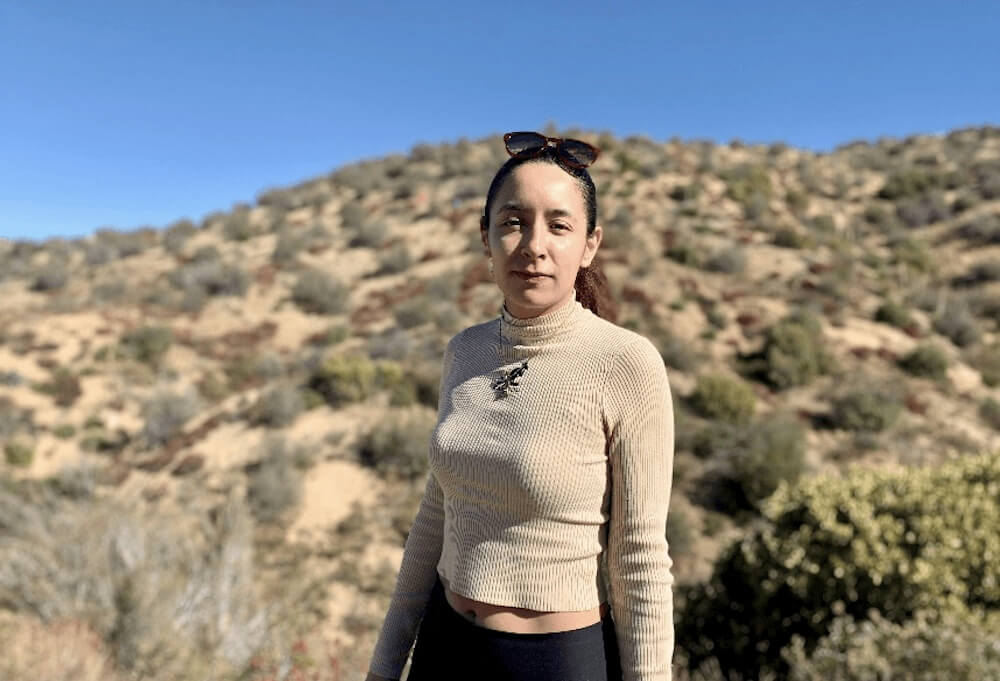
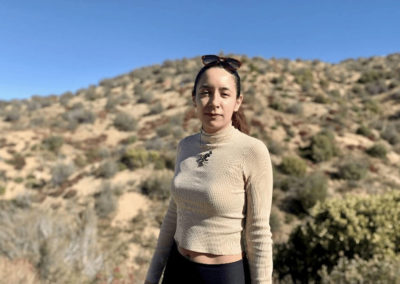
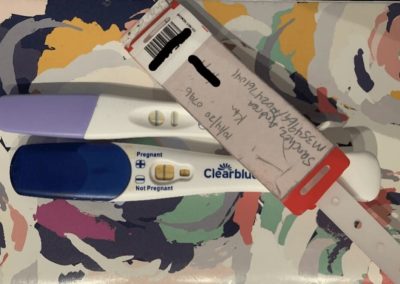
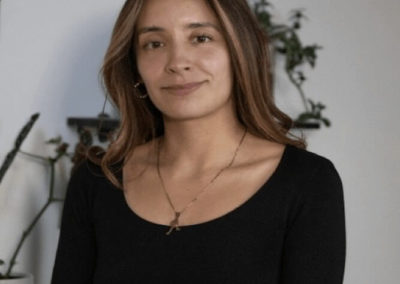
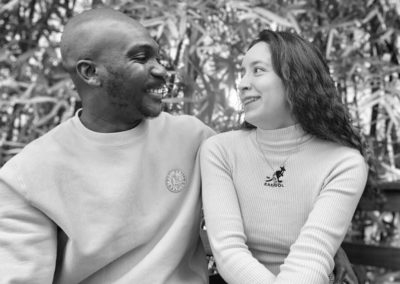


0 Comments